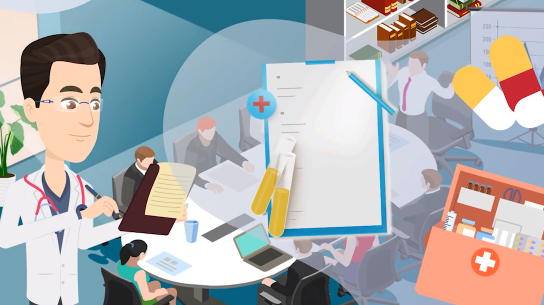5th China-ASEAN Summit for Drug Development and Cooperation held in South China

The 5th China-ASEAN Summit for Drug Development and Cooperation, co-sponsored by the National Medical Products Administration (NMPA) and the government of South China's Guangxi Zhuang autonomous region, was held in Nanning, capital of Guangxi, from Sept 20 to 21. Jiao Hong, Commissioner of the NMPA, addressed the summit.

Jiaohong, Commissioner of the National Medical Products Administration (NMPA), speaks at the 5th China-ASEAN Summit for Drug Development and Cooperation. [Photo/nmpa.gov.cn]
The summit was divided into several parts, including drug regulation, drug regulatory science and innovation, progress in drug quality control technology and dialogue on drug industry cooperation and development.
Drug regulatory agencies from China and ten ASEAN nations, China office of the World Health Organization and domestic and foreign drug manufacturing and distribution enterprises exchanged views on drug regulatory policy, industry R&D innovation and regional industry cooperation under the theme of "drug regulation innovation and high-quality industry development". For the first time, the summit included topics on cosmetics regulation.

Attendees of the 5th China-ASEAN Summit for Drug Development and Cooperation pose for a group photo. [Photo/nmpa.gov.cn]
Jiao said at the summit that the revised Drug Administration Law and the Vaccine Administration Law will go into effect on Dec 1, 2019. The NMPA will accelerate the formulation and revision of supporting regulations, strengthen publicity and training, and improve the regulatory system to provide institutional support for the high-quality development of the industry.
Efforts will be made to deepen reform of the review and approval system, speed up approval of innovative drugs and urgently needed drugs, optimize the review process, and refine evaluation requirements and guidelines, to create a policy environment conducive to innovation and give the public access to new and quality drugs in a timely manner.
The NMPA will strengthen full life-cycle supervision, emphasize problem-orientated concepts, focus on risk management, urge marketing authorization holders to assume the main responsibility, and implement the opinions on establishing professional and specialized drug inspector teams issued by the General Office of the State Council to enhance public safety on drug use.
To consolidate the foundation for more effective full life-cycle supervision, the NMPA will persistently carry out research on regulatory science, speed up development of new standards, tools and methods with the support of research bases on regulatory science and progressively improve the scientific level of drug regulation.
The NMPA will also deepen international exchanges and cooperation and play a more active role in the formulation and revision of global rules and technical standards, propose more effective coordination solutions and remain devoted to the global health cause.
China will actively push forward exchanges with drug regulatory agencies of ASEAN countries in terms of policies, regulations and regulatory practices, enhance mutual understanding, address issues of concern, facilitate industry cooperation, bring more high-quality pharmaceutical products into the Chinese and ASEAN markets, and contribute to the health undertakings of the member countries, said the Commissioner.
Li Bin, vice-governor of the Guangxi Zhuang autonomous region, proposed to expand drug safety cooperation between China and ASEAN nations, foster a competitive pharmaceutical industry, and promote exchanges and communication between professional talents.
Heads of relevant NMPA departments and affiliated institutions and representatives of provincial drug regulatory agencies attended the summit.
The China-ASEAN Summit for Drug Development and Cooperation is a high-level forum under the framework of the China-ASEAN Expo. It has been held five times since 2011, gathering representatives from drug regulatory agencies, the World Health Organization, research institutes, universities, large multinational enterprises and industry associations.
Through the platform, participants gain a more comprehensive and in-depth understanding of drug regulation in different countries, promote mutual trust, enhance confidence in cooperation and form consensus on strengthening drug safety cooperation and promoting bilateral and multilateral trade in pharmaceutical products.




